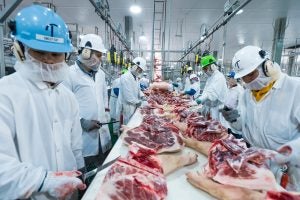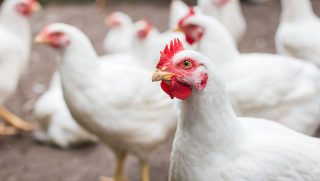Under current law, farmers and ranchers must have their animals processed at U.S. Department of Agriculture–certified facilities to sell their products commercially. However, the Processing Revival and Intrastate Meat Exemption (or PRIME Act) has again made its way into Congress to change inspection regulations.
While current law exempts custom slaughter of animals for personal, household, guest, and employee use only, the PRIME Act allows the states to allow meat from custom-slaughter facilities to be sold for general consumption — without USDA inspection. In essence, the PRIME Act would amend the Federal Meat Inspection Act to allow custom slaughter facilities to sell uninspected meat directly to consumers, restaurants, food service, and retail.
Under the Federal Meat Inspection Act, custom slaughter facilities harvest livestock for the personal use of the animal’s owner. The food produced may not enter commerce. There is no continuous inspection, and no veterinarian is required to assess the health of the livestock.

“American consumers rely on rigorous USDA inspection to ensure the safety and quality of their meat and poultry,” said Meat Institute President and CEO Julie Anna Potts. “Allowing the meat to enter commerce without inspection — and without alerting consumers they are buying uninspected meat — jeopardizes food safety and will undermine consumer confidence in all meat products.”
Federally inspected facilities, and state-inspected facilities with cooperative agreements with USDA’s Food Safety and Inspection Service, have inspectors continuously overseeing operations to ensure the safety and quality of meat and poultry and the health and wellness of the livestock. Should a problem occur, products bearing the mark of USDA inspection can be traced to protect consumers.
While proponents of the bill say that it will make it easier for smaller farms and ranches to sell to consumers, opponents maintain that USDA inspections are important to food safety and consumer trust.
“NCBA is in favor of reducing regulatory burdens, but not at the expense of food safety,” said Todd Wilkinson, a South Dakota cattle producer and president of the National Cattlemen’s Beef Association. “While the PRIME Act is well-intentioned, allowing uninspected beef to enter the retail market is dangerous to consumers.”
Reps. Thomas Massie (R-KY) and Chellie Pingree (D-MN) reintroduced the PRIME Act in the U.S. House. U.S. Sens. Angus King (I-MN) and Rand Paul (R-KY) have introduced the same bill in the Senate.
“It is important for the American economy and the entire meat value chain that the safety of our meat and poultry is never taken for granted. The meat and poultry industry, and the taxpayer, has invested billions of dollars in food safety protections, research, and infrastructure to ensure we have the safest meat in the world,” said Potts. “While this bill may be well-intentioned, it poses especially unnecessary risks given the many resources available to help new and small facilities gain inspection from FSIS.”
Resources available to processing facilities
There are currently over 6,500 federally inspected facilities located throughout the U.S. As of January, 946 plants were slaughtering under federal inspection.
Currently, over $1 billion in federal technical assistance and financial assistance is available through USDA-administered programs:


